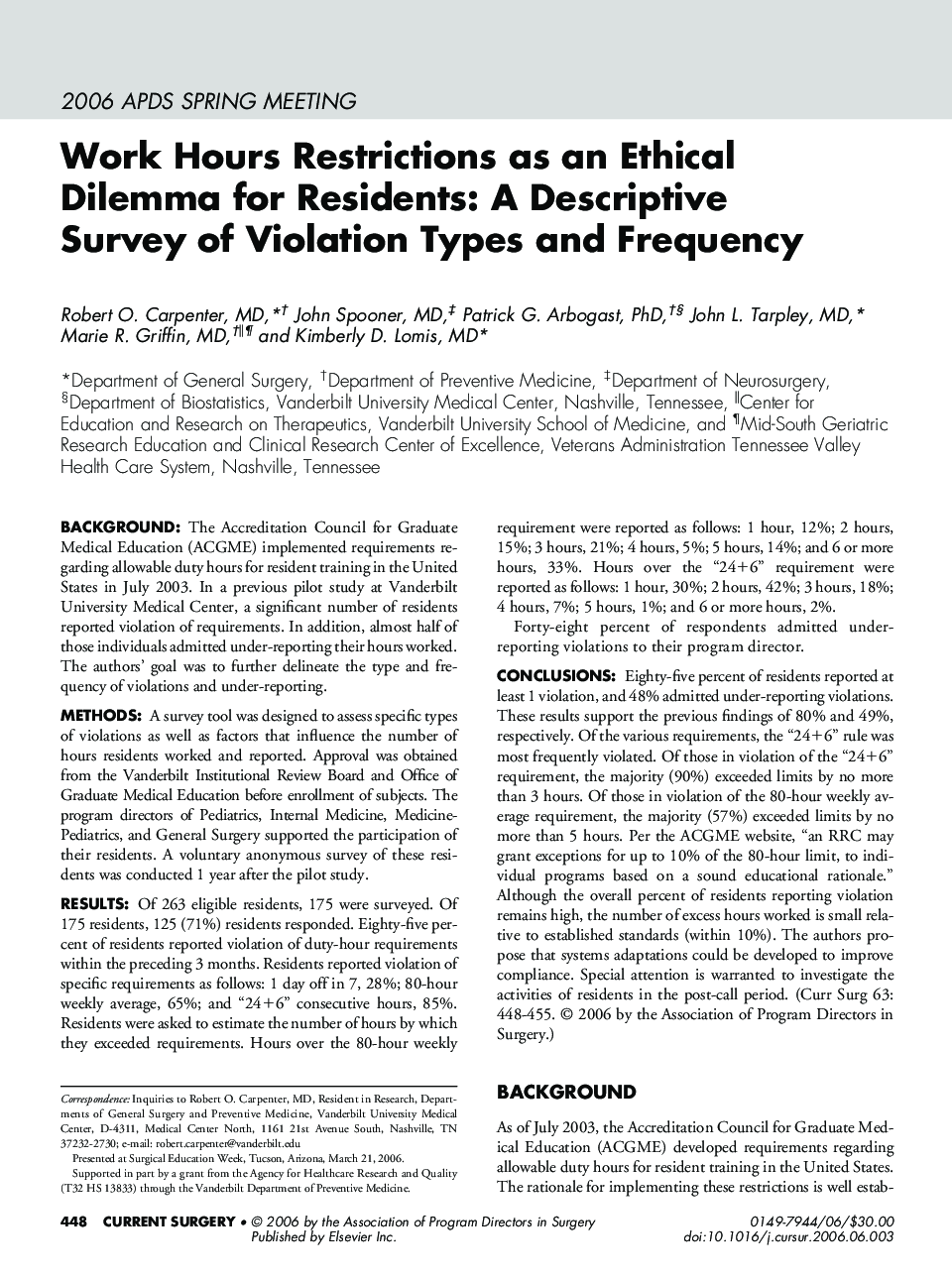| کد مقاله | کد نشریه | سال انتشار | مقاله انگلیسی | نسخه تمام متن |
|---|---|---|---|---|
| 4284328 | 1611851 | 2006 | 8 صفحه PDF | دانلود رایگان |

BackgroundThe Accreditation Council for Graduate Medical Education (ACGME) implemented requirements regarding allowable duty hours for resident training in the United States in July 2003. In a previous pilot study at Vanderbilt University Medical Center, a significant number of residents reported violation of requirements. In addition, almost half of those individuals admitted under-reporting their hours worked. The authors’ goal was to further delineate the type and frequency of violations and under-reporting.MethodsA survey tool was designed to assess specific types of violations as well as factors that influence the number of hours residents worked and reported. Approval was obtained from the Vanderbilt Institutional Review Board and Office of Graduate Medical Education before enrollment of subjects. The program directors of Pediatrics, Internal Medicine, Medicine-Pediatrics, and General Surgery supported the participation of their residents. A voluntary anonymous survey of these residents was conducted 1 year after the pilot study.ResultsOf 263 eligible residents, 175 were surveyed. Of 175 residents, 125 (71%) residents responded. Eighty-five percent of residents reported violation of duty-hour requirements within the preceding 3 months. Residents reported violation of specific requirements as follows: 1 day off in 7, 28%; 80-hour weekly average, 65%; and “24+6” consecutive hours, 85%. Residents were asked to estimate the number of hours by which they exceeded requirements. Hours over the 80-hour weekly requirement were reported as follows: 1 hour, 12%; 2 hours, 15%; 3 hours, 21%; 4 hours, 5%; 5 hours, 14%; and 6 or more hours, 33%. Hours over the “24+6” requirement were reported as follows: 1 hour, 30%; 2 hours, 42%; 3 hours, 18%; 4 hours, 7%; 5 hours, 1%; and 6 or more hours, 2%.Forty-eight percent of respondents admitted under-reporting violations to their program director.ConclusionsEighty-five percent of residents reported at least 1 violation, and 48% admitted under-reporting violations. These results support the previous findings of 80% and 49%, respectively. Of the various requirements, the “24+6” rule was most frequently violated. Of those in violation of the “24+6” requirement, the majority (90%) exceeded limits by no more than 3 hours. Of those in violation of the 80-hour weekly average requirement, the majority (57%) exceeded limits by no more than 5 hours. Per the ACGME website, “an RRC may grant exceptions for up to 10% of the 80-hour limit, to individual programs based on a sound educational rationale.” Although the overall percent of residents reporting violation remains high, the number of excess hours worked is small relative to established standards (within 10%). The authors propose that systems adaptations could be developed to improve compliance. Special attention is warranted to investigate the activities of residents in the post-call period.
Journal: Current Surgery - Volume 63, Issue 6, November–December 2006, Pages 448–455